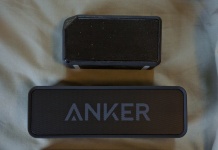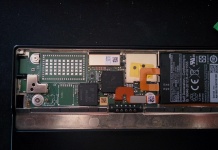 On his blog, Charlie Stross ponders how small the electronics necessary to power computing and wi-fi have become, and wonders if the next great malware frontier might be physical spy devices concealed inside Bluetooth keyboards or other innocuous accessories. If it’s a keyboard, all someone needs to do is swap keyboards with you while you’re a way and no one else will be the wiser…while the microchip inside that keyboard is snooping your passwords and secretly phoning home.
On his blog, Charlie Stross ponders how small the electronics necessary to power computing and wi-fi have become, and wonders if the next great malware frontier might be physical spy devices concealed inside Bluetooth keyboards or other innocuous accessories. If it’s a keyboard, all someone needs to do is swap keyboards with you while you’re a way and no one else will be the wiser…while the microchip inside that keyboard is snooping your passwords and secretly phoning home.
And it’s not just keyboards. It’s ebook readers. Flashlights. Not your smartphone, but the removable battery in your smartphone. (Have you noticed it running down just a little bit faster?) Your toaster and your kettle are just the start. Could your electric blanket be spying on you? Koomey’s law is going to keep pushing the power consumption of our devices down even after Moore’s law grinds to a halt: and once Moore’s law ends, the only way forward is to commoditize the product of those ultimate fab lines, and churn out chips for pennies. In another decade, we’ll have embedded computers running some flavour of Linux where today we have smart inventory control tags—any item in a shop that costs more than about £50, basically. Some of those inventory control tags will be watching and listening to us; and some of their siblings will, repurposed, be piggy-backing a ride home and casing the joint.
It’s an interesting thought. Up ‘til now, we’ve largely been concerned with additional software running on the processors of our devices. But now computers are getting small enough you can build them into all sorts of devices, including ones that aren’t supposed to have computers in them at all. (Stross points to the example of a Russian discovery that certain Chinese-made tea kettles had wi-fi enabled embedded computers that phoned home covertly built into them.)
Who could have imagined that miniaturization of computer technology might have such a down side?































